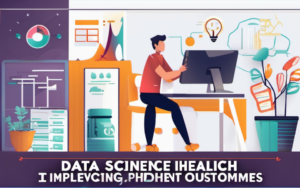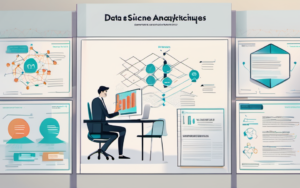Remember a time when business leaders relied solely on gut feelings to make decisions? While intuition played a crucial role in shaping our world, the business landscape has evolved, demanding a more data-driven approach. Today, we explore the evolution of decision making, delving into the strengths and limitations of both gut feelings and data analysis.
The Era of Gut Instincts
The world was a different place when relying on gut feelings for business decisions was the norm. Entrepreneurs and leaders trusted their instincts to guide them through challenges and opportunities. This approach was often fueled by experience, market knowledge, and a strong understanding of customer needs.
The Appeal of Intuition
The appeal of intuition lies in its speed and simplicity. Gut feelings can provide swift answers, allowing for quick decisions in fast-paced environments. This approach can be particularly valuable in situations where data is limited or time is of the essence. For example, a seasoned salesperson might instinctively know which approach to use based on years of experience interacting with customers.
Limitations of Gut Feelings
However, relying solely on gut feelings can lead to biased decision making. Intuition is influenced by personal experiences, emotions, and unconscious biases, which can lead to inaccurate assessments and suboptimal outcomes. Consider the example of a manager who consistently favors candidates from their alma mater, a bias that could potentially limit the pool of talent available.
The Rise of Data-Driven Decision Making
The advent of technology and the increasing availability of data have revolutionized the way we make decisions. Data-driven decision making has become a cornerstone of modern business, offering a more objective and analytical approach.
The Power of Analytics
Data analytics provides valuable insights into customer behavior, market trends, and competitor strategies. By analyzing data, businesses can identify patterns, predict future outcomes, and make informed decisions. For example, a company can utilize customer purchase history and demographic data to tailor marketing campaigns for specific segments of their audience.
Benefits of Data-Driven Approaches
Data-driven approaches offer several advantages, including:
- Reduced Bias: Data analysis can minimize the impact of personal biases, leading to more objective decisions.
- Improved Accuracy: Data-driven insights provide a more comprehensive and nuanced understanding of a situation, leading to more accurate predictions and outcomes.
- Increased Efficiency: Data-driven decision making can automate processes and streamline workflows, increasing overall efficiency.
Balancing Intuition and Data
While data-driven decision making offers significant advantages, it’s crucial to remember that it’s not a replacement for human judgment and intuition. The most effective approach is to balance data with intuition, leveraging the strengths of both.
The Importance of Context
Data analysis provides valuable insights, but it’s important to consider the context surrounding the data. For example, a sales report might show a decline in sales, but it’s essential to understand the external factors that may have contributed to this trend, such as economic conditions or changes in the competitive landscape.
Combining Gut Feelings with Data Analysis
To make the most informed decisions, consider the following:
- Use Data to Inform Intuition: Data can provide a foundation for your intuition, helping you to validate or challenge your initial instincts.
- Trust Your Gut When Data is Limited: In situations where data is scarce, trust your gut feeling based on experience and expertise.
- Consider Both Data and Intuition: When making complex decisions, weigh both data analysis and intuition, ensuring you have a holistic understanding of the situation.
The Future of Decision Making
The future of decision making lies in a hybrid approach, integrating data analytics, artificial intelligence, and human judgment. This approach will leverage the power of data while retaining the crucial role of human intuition and experience.
The Role of Artificial Intelligence
Artificial intelligence (AI) is rapidly transforming the field of decision making. AI algorithms can analyze massive datasets, identify patterns, and make predictions with remarkable accuracy. This technology can automate routine tasks, freeing up human resources to focus on more strategic initiatives.
The Importance of Human Judgment
While AI is a powerful tool, it’s essential to remember that human judgment remains critical. Humans can provide context, interpret data, and make ethical decisions that AI systems may struggle with.
The future of decision making involves leveraging the strengths of both data and intuition, creating a dynamic partnership between human judgment and AI-powered analytics. This approach will empower businesses to make more informed, efficient, and ethical decisions, leading to greater success in an increasingly complex and data-driven world.




